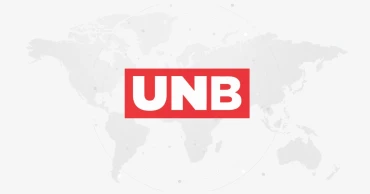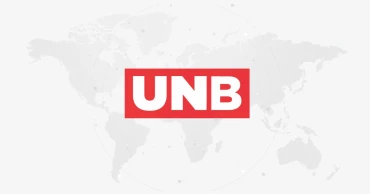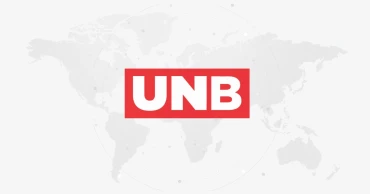Inflation rate
Bangladesh inflation rises to 8.29% in November
Bangladesh’s general point-to-point inflation rate rose slightly to 8.29 %in November 2025 from 8.17 % in October, according to the latest data from the Bangladesh Bureau of Statistics (BBS).
The modest increase in overall inflation was primarily driven by a rise in food prices.
Read more: Bangladesh economy shows external stability despite internal challenges: Report
Food inflation edged up to 7.36 % in November from 7.08 % in October.
In contrast, non-food inflation eased marginally to 9.08 %in November from 9.13 % in the previous month.
The BBS data also indicated a slight uptick in inflation in both rural and urban areas during the month.
Read more: Rice biggest driver of October’s food inflation in Bangladesh: GED
2 months ago
BB will announce new monetary policy on June 30
Bangladesh Bank (BB) will announce monetary policy for the new fiscal year (2022-23) on June 30 amid challenges of growing inflation rate and taka weakening against US dollar.
BB’s outgoing governor Fazle Kabir will announce the monetary policy physically through a press conference though it was announced virtually or just uploaded on the central bank website in the last two years due to the Covid-19 pandemic.
Read:More Bangladeshis are becoming rich despite pandemic and inflation: BB
Usually the BB formulates and publishes monetary policy for controlling inflation and achieving the desired GDP growth.
Monetary policy is very important in the financial management of the country. Through this, a plan is presented to increase or decrease the internal debt, money supply, internal resources, and foreign resources.
The BB has been facing several challenges this year to prepare a monetary policy as the time is very challenging for price hike of energy and essential commodities as well, said a senior official who works at the monetary policy department of BB.
Chief Economist of BB Md. Habibur Rahman told UNB that the government has set interest rates on bank loans and the exchange rate of dollars.
“There is nothing new in this year's monetary policy, but controlling the inflation rate will be given priority,” he said.
Experts said the government borrowing from banks and other domestic sources to make up the budget deficit will create a pressure on bank deposit and in the monetary policy should include measures to increase investment and employment.
3 years ago
Budget offers no good news for lower, middle income groups: CPD
The Center for Policy Dialogue (CPD), a private think-tank, has found no good news for lower and middle-income groups in the newly announced budget, voicing doubt about government’s ability to lower the inflation rate at 5.6 per cent.
Finance Minister AHM Mustafa Kamal placed the budget for FY2022-23 expecting inflation rate to come down to 5.6 per from over 6.29 per cent (in April as per BBS).
Also read: Budget to make economy stronger: Finance Minister
Experts and economists believe the inflation has hit over 10 per cent.
As a result, lower, middle class and fixed income groups will face challenges to run a family as the commodity prices are unlikely to come down if the inflation trend remains higher.
The CPD made the observation at a press conference in a city hotel on Friday, a day after presentation of Bangladesh’s national budget of Tk6.78 trillion for the upcoming fiscal year starting from July 1.
“The prices of all kinds of goods including fuel oil and food products are increasing in the international market. Commodity prices have been rising in the world market since the Covid-19 situation began to normalize,” said Dr Fahmida Khatun, executive director of CPD.
She said, "The budget has not taken adequate steps to reduce the prices of essential commodities. It was necessary to reduce the prices of 29 commodities including rice and pulses, but it did not happen. The CPD had recommended a reduction in taxes to reduce the prices of commodities. But that too was not kept.
3 years ago
Inflation rate is double than the BBS data, says SANEM in a report
The South Asian Network on Economic Modeling (SANEM) has claimed that the overall inflation rate in the country is more than double from the calculation provided by Bangladesh Bureau of Statistics (BBS).
The SANEM claimed that the overall inflation rate in urban areas is now 12.47 per cent, which is 12.10 per cent in rural areas in Bangladesh.
However, the report released by BBS on February 16 said that in the first month of January this year, the inflation rate in the country was 5.86 per cent.
The rate was above 6 per cent to 6.5 per cent in December last, which was 5.98 per cent in November.
Read: Speakers in webinar urge to promote EV business in Bangladesh
Economists have earlier expressed doubt about the credibility of the BBS figures regarding inflation in the wake of the upward trend of commodities prices. This time in a study of SANEM found more information that shows the weakness of BBS reports.
The SANEM released an online report on Thursday entitled "Inflation: Government Statistics vs. the Reality of Marginal People".
Selim Raihan, executive director of SANEM, said the BBS provides information on inflation rate that does not reflect reality of economics, if the correct information is not brought out, the recovery process will not be sustainable.
3 years ago
How Does Inflation Affect Business, Professionals, Mass People in Bangladesh?
In recent times, Bangladesh and other countries of the world are noticing a worrying change. A close look at the news or the dailies shows that the price of everyday items is on the rise. Why is that happening? The increasing price of commodities, in other words, the reduced purchasing power is attributed to inflation. In this article, we take a deep dive into inflation, its causes, and its impact on business, people and professionals across Bangladesh and the globe.
What is Inflation?
According to Investopedia, Inflation is the phenomenon of reduced purchasing capability. It is also defined as a situation where a currency loses its value, that is, the purchasing power over time. Now it is hard to see exactly how the money loses its value. For example, the prices of daily essentials like vegetables, oil, wheat, onion, garlic have seen an unprecedented surge in price.
Read CPD finds 5.3 per cent inflation rate unrealistic as living cost goes up
What does that mean? It means people are getting less commodities for the same amount of money spent. The increment might not seem like much. In percentage, the inflation rise is even less. But when the commodities add up along with the households that spend on these commodities, the difference rises to a huge sum.
Now there might be a question, why does inflation occur? In simple terms, inflation occurs when there is an increased money supply in the economy. There are again two types of inflation which will be discussed in the latter point.
Read Mexico ends year with inflation at 7.36%, most in 20 years
Why does Inflation Occur?
To better understand why inflation occurs, it's important to understand the types of inflation. There are mainly two types of inflation – demand-pull inflation and cost-push inflation.
Demand-pull inflation occurs when there is excess demand for any product. It can be a commodity or service or anything in general. The cost-push inflation occurs when the price of a product increases due to the increase in the cost of factors of production.
From the perspective of Bangladesh, both demand-pull and cost-push inflation are attributed to the overall state of inflation in the country.
Read Rising inflation hurts rural people more than their urban counterparts: BBS
The inflation of Bangladesh is at an all-time high of 5.98%. Since mid-2021, Bangladesh has been steadily seeing an increment of the inflation rate which peaked in December. There are two direct plausible reasons as to why inflation is occurring. And both of these apply to almost all similar developing economies like Bangladesh.
The first reason is bailouts, stimulus packages, and subsidies. Most of the business and industry sector has suffered greatly from the pandemic. The government undertook various stimulus packages which helped the businesses stay afloat. This increased the money supply in the economy.
While the money supply meant businesses could go on to sustain themselves it also posed a few issues. Due to lockdowns and restrictions in movement, people didn’t spend much of their disposable income. As the economy gradually reopens, people are spending this money which is creating a supply shortage.
Read Commonwealth to assist Bangladesh in post-graduation economic growth
Another reason for the supply shortage is the fallout of the global supply chain. With increased production, sourcing, and transportation cost, businesses have no other way but to increase the price of the commodities. Again, this is directly related to inflation as people prefer to stock up before the purchasing power plummets even further. That in turn causes a supply shortage of products.
4 years ago
CPD finds 5.3 per cent inflation rate unrealistic as living cost goes up
The 5.3 per cent inflation target, set by Bangladesh Bank’s new monetary policy, is not realist as it has been estimated on the basis of a consumption basket developed 16 years ago since when the cost of living has jumped much higher.
This observation was made by leading think-tank Centre for Policy Dialogue (CPD) at a virtual media briefing on the newly announced monetary policy statement (MPS) on Tuesday.
CPD said that the consumption basket used for calculating overall general inflation was created in 2005 and so it does not reflect the current reality and actual prices in the market.
Also read: Inflation declines to 5.26 in May
“The poor and low income groups are increasingly finding it difficult to meet their requirements in the face of dual blows from—erosion in purchasing and income”, said Dr Fahmida Khatun, executive director of CPD in the presentation on the MPS 2021-22.
She said that data shows that the 12-month average food and non-food inflation rates have fluctuated in a cyclical pattern over the past several years.
“So, the inflation rate has lost its relevance to the real world”, she said, adding that the consumer price index (CPI) of medical care and health expenses increased from 156.1 in July 2012 to 251.9 in June 2021.
She noted that the inflation rate of medical care and health expenses increased from 0.18% in April 2020 to 2.42% in May 2020, due to the rise in COVID-19 cases.
Also read: BB unveils monetary policy for Jan-Jun period
Dr Fahmida also said the share of transport in actual consumption expenditure was 15% higher than the weight in CPI.
CPD distinguished fellow Prof Dr Mustafizur Rahman, director research Dr Khondaker Golam Moazzem and senior research fellow Towfiqul Islam Khan also spoke on the occasion.
The CPD also said that the target for private sector credit growth at 14.8% is unlikely to be achieved as “it is very high compared to the trend in the recent past”.
Indeed credit to the private sector has been largely on a declining trend since Mar 2018 – and is below 10% since November 2019.
The Bangladesh Bank on July 29 announced the MPS 2021-22 setting up its different monetary targets with continuing its ongoing expansionary monetary policy amid a cautious stance for the current fiscal year (FY) to help boost recovery of the pandemic-hit economy.
The CPD said the poor and low income group people should be provided with direct cash support to create demands in order to make the economic recovery from the shock of the Covid-19.
It also suggested easing the conditions for the non-formal sector to ensure bank loans under the stimulus package, saying that the big businesses are taking the full advantage of the government’s financial support while micro and small businesses are far behind in the race.
About the lower private investment inflow, Dr Mustafizur said setting up a special economic zone alone cannot play an effective role to attract private investment.
“There are so many factors like ease of doing business, regulatory support, supportive infrastructure, one-stop service and also skilled manpower which need to be addressed to attract private investment”, he said.
Responding to a question on the remittance management, he said the government can issue bonds in foreign currency for mega infrastructure for which it takes foreign loans.
“That requirement could be met with these bonds ensuring the investment is safe and return is secured”, he added.
About excess bank liquidity of about Tk 2.5 lakh crore, Dr Golam Moazzem said the Bangladesh Bank can take measures through bringing change in different mechanisms of cash reserve ratio CRR and statutory liquidity ratio (SLR).
He said a joint monitoring of Bangladesh Bank and Bangladesh Securities and Exchange Commission (BSEC) is essential to ensure that the money provided by the government’s stimulus package is not invested in stock market.
4 years ago
Inflation hit 6pc in June
The annual inflation rate increased slightly to cross the 6 percent mark again in June, up from 5.35 percent recorded the previous month thanks to a rise in food inflation as the flood damaged crops, vegetables and fishes in the country.
5 years ago


.jpg)


.jpg)




